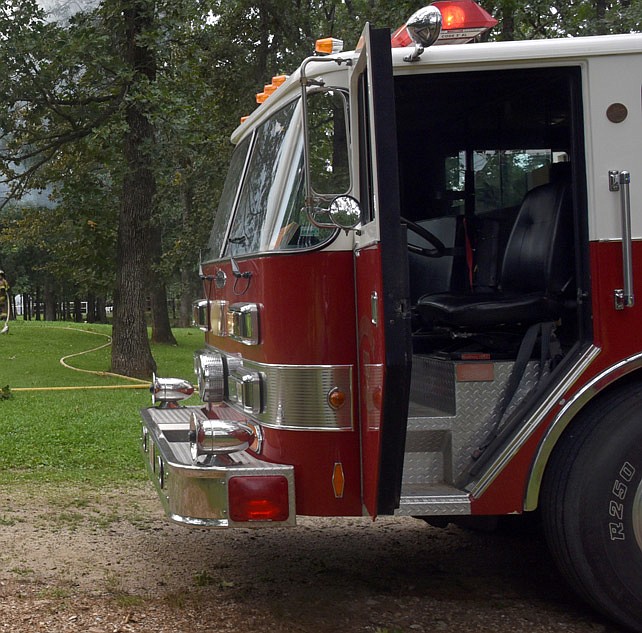A tax levy increase for the Russellville-Lohman Fire Protection District is on the ballot for next week's municipal election, the fire district's first tax increase in nearly 20 years.
The RLFPD has had the same tax levy since 2003; Proposition 1 asks voters to approve an additional annual tax of $0.27 per one hundred dollars assessed valuation to provide funds to support the district.
For a home with a value of $100,000, this would result in a tax increase of $51.30 annually. Across the district, the levy would generate $145,000-$150,000 per year.
Like the California Rural Fire Protection District, which recently saw the successful passage of a tax levy increase of its own, the district finds itself in need of necessary upgrades - station improvements, equipment upgrades and better PPE for volunteer firefighters to help the district maintain its current level of service.
Jeremy Amick, chairman of the district's Committee for Better Fire Protection, said the tax increase is an urgent need for the district, which covers 95 square miles of territory and a population of about 3,000.
"Since 2003, the fire department has been operating under the same tax levy budget," Amick said. "They've not been to the trough for a drink in 18 years, and they just can't continue to operate under that limited amount of funding that's provided from that tax levy from 2003."
For instance, Amick said the district's oldest vehicle is 56 years old; the district's 14 vehicles have an average age of 31. Per an informational brochure provided by the district, an emergency vehicle is considered out of date at 25 years old, which applies to more than half of that group.
The estimated cost to replace some of those vehicles is much higher now than when the district was first established in 2003, per the brochure; the district's 37-year-old 1,000 gallon engine/pumper, which could have been replaced for $270,000 in 2003, now costs an estimated $550,000 in 2021.
Amick said another need, equipping the district's volunteer firefighters, is difficult at its current level of funding.
"Right now, all our self-contained breathing apparatuses (are outdated)," Amick said. "The cost to equip a firefighter - with the coats, the pants, the boots, the hood, the helmet, gloves, breathing apparatus - right now is a little over $9,000."
A third key improvement Amick stressed was replacing one of its three stations. The district has stations in Russellville, Lohman and Enon, and the Lohman building is nearly a century old, Amick said.
"The expenses just continue to mount," Amick said. "To be able to maintain solvency and to continue to provide that efficient fire service here in the area, we need to hopefully get this tax levy approved and pushed through to provide them with some additional funding."
One potential benefit of replacing the Lohman station could be housing an ambulance, Amick said; currently, Russellville's ambulance service comes out of Jefferson City. Amick said housing an ambulance of its own would be much more efficient for the district's population.
The members of the Committee for Better Fire Protection were all shocked at the high number of needs they learned about after being asked to join the effort, Amick said. Nevertheless, he said the group agrees that Proposition 1 would be crucial to the community.
"Everybody on this (five-person) committee is a volunteer," Amick said. "I think all but one of us is retired, the rest work full-time jobs. We're giving up our free time to do this, simply because we believe it's the right thing to do. It's our community, and we think that the fire department needs and deserves this tax levy increase to make sure they continue to be able to efficiently provide service in the community."

